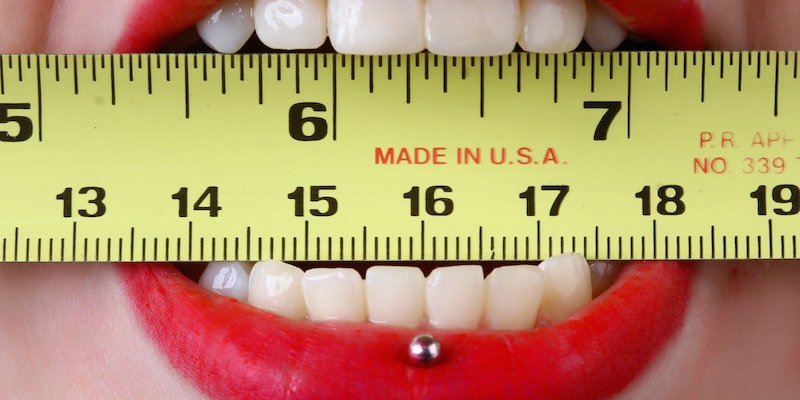Many individuals decide whether to undergo wisdom teeth removal as part of the natural progression of oral health and development. With varied experiences, symptoms, and opinions about this procedure, it's essential to separate fact from fiction. This article delves into the details of wisdom teeth removal, ensuring patients, caregivers, and the general public are equipped with accurate and comprehensive knowledge.
What are Wisdom Teeth?
Wisdom teeth, known as third molars, have always been an intriguing facet of oral development. They are the last to appear at the utmost back of the mouth, often amidst a flurry of questions and potential concerns.
Historical Perspective
Our ancestors once heavily relied on these molars. Their diets, replete with raw plant material and uncooked meat, necessitated robust molars to handle rigorous grinding. As evolution progressed, however, the human diet transformed with the advent of cooking and food processing. Subsequently, the human jaw began to shrink, but the number of teeth remained constant. This evolutionary shift is significant. With the modern, smaller jaw, the emerging wisdom teeth often find it challenging to fit comfortably or even correctly. This evolutionary problem has contributed to many dental challenges concerning third molars.
Varied Presence
Interestingly, only some are destined to have a complete set of wisdom teeth. Some individuals may only see one or two emerge, while others might not experience any at all. Genetic factors play a role in this dental diversity. However, Their absence or presence doesn’t offer an advantage or disadvantage in today's context. However, understanding their trajectory can help anticipate potential oral health challenges.
The Timing of Their Arrival
Traditionally, wisdom teeth debut between the ages of 17 and 25. This age range is often associated with achieving adulthood and gaining life wisdom, hence the moniker "wisdom teeth." Although some individuals might experience a slightly earlier or later eruption, this period remains the most common for third molar emergence.
Reasons for Wisdom Teeth Removal
The decision to remove these third molars isn't arbitrary. Various health considerations and potential complications drive the conversation around extraction.
Impacted Teeth
One of the prime reasons for considering extraction is impaction. Wisdom teeth that can't adequately emerge due to limited space or misalignment remain lodged against other teeth or the jawbone. This situation not only causes pain and discomfort but may lead to further complications down the line.
Misalignment and Crowding
Wisdom teeth might not always align correctly, even when they find space to emerge. Misaligned third molars can push adjacent teeth, disrupting the natural alignment and potentially necessitating corrective dental procedures.
Oral Health Challenges
Gum inflammation, a precursor to gum disease, can be exacerbated by improperly grown wisdom teeth. Additionally, when these molars don't emerge right, it creates pockets where food particles can get trapped. This increases the risk of cavities. Furthermore, complications such as wisdom teeth infections need active monitoring and care after removal.
Proactive Dental Health
While some dental professionals might lean toward a wait-and-watch approach, others believe in proactive intervention. The wisdom teeth removal recovery period is often easier for younger individuals. Hence, a preemptive extraction might be advised to prevent potential problems, even if they are asymptomatic.
The Removal Procedure

The journey from decision-making to post-op care during extraction is critical. Understanding each phase can ease apprehensions and ensure patients are better prepared.
Thorough Consultation
The initial step always involves a comprehensive examination. Dental professionals will evaluate the necessity for extraction, aided by X-rays, which provide insights into the position and growth pattern of the wisdom teeth. This preliminary stage sets the groundwork for a tailored extraction plan.
Anesthesia - Ensuring Comfort
An essential part of the process is determining the type of anesthesia. Whether it’s local, sedation, or general anesthesia, the choice often depends on the patient's comfort and the complexity of the extraction. Ensuring the patient remains pain-free and at ease is a priority.
Step-by-step Extraction
The surgeon first makes precise incisions in the gum to expose the tooth and underlying bone. Depending on the tooth's position and size, it might be divided into sections to facilitate a smoother extraction. After extraction, sutures may promote optimal healing, and a gauze pad might be placed to manage any bleeding.
Recovery Essentials
The wisdom teeth removal recovery period varies among individuals. Understanding things to eat after wisdom teeth removal becomes crucial during this time. Soft, non-irritating foods and adequate hydration can expedite healing. Monitoring for signs of wisdom teeth infection after removal is paramount to ensure complications don’t arise.
Post-Procedure Care
After the extraction process, a period of recovery and healing commences. To ensure optimal recovery and avoid complications, it's essential to adhere to the recommendations provided by the dental professional.
The Initial 48 Hours
The first two days are critical. Patients should focus on rest and avoid engaging in strenuous activities. This minimizes the risk of bleeding and ensures that the healing process commences smoothly. As with any medical procedure, it's necessary to be vigilant about potential complications during the wisdom teeth removal recovery phase.
Managing Discomfort and Swelling
Swelling is a natural response post-extraction. Patients can use cold packs externally on the affected area to mitigate this. As the dentist or oral surgeon advises, over-the-counter pain medications can also be effective. Always remember to use these medicines as directed.
Diet Considerations
Considering what things to eat after wisdom teeth removal is vital. Patients should favor soft foods like yogurt, mashed potatoes, and soups. It's best to avoid spicy, hot, or crunchy foods that might irritate the surgical site. Ensuring ample hydration, excluding beverages like coffee and alcohol, is equally significant during the wisdom teeth removal recovery period.
Oral Hygiene
While vigorous rinsing should be avoided immediately after the extraction, maintaining oral hygiene is paramount. Gentle brushing, avoiding the surgical site, and saline rinses can aid in preventing any wisdom teeth infection after removal.
Potential Complications

While many patients undergo the extraction procedure without hiccups, it's essential to be aware of possible complications and how to address them.
Dry Socket
One of the more common complications post-extraction is a dry socket. This condition arises when the blood clot, which aids in healing, is dislodged. This exposes the underlying bone and nerves, causing significant discomfort. If someone suspects a dry socket, they should seek dental advice immediately.
Prolonged Pain or Swelling
While some pain and swelling are expected during the wisdom teeth removal recovery, if these symptoms persist beyond a few days, they might indicate an underlying issue, such as a wisdom teeth infection after removal. Early detection and intervention are crucial.
Numbness or Altered Sensation
Rarely, patients might experience numbness or altered sensations in their lips, chin, or tongue post-extraction. If these symptoms don't resolve within a few hours, it's best to consult with the oral surgeon.
Long-term Benefits of Extraction
While a procedure can be daunting, the long-term advantages often outweigh the immediate discomfort and apprehension.
Prevention of Overcrowding
One of the primary benefits of timely extraction is the prevention of dental overcrowding. Patients can sidestep subsequent alignment challenges by addressing potential space issues early on.
Reduced Risk of Oral Complications
By proactively removing problematic wisdom teeth, patients significantly reduce the likelihood of complications like gum disease or cavities, which might necessitate more extensive treatments later on.
Enhanced Oral Health
Lastly, a proactive approach to wisdom teeth, combined with regular dental check-ups, positions individuals for enhanced oral health. Regular monitoring ensures that potential complications, like a wisdom teeth infection after removal, are promptly addressed, maintaining the integrity of one's dental well-being.
Conclusion:
The decision to remove wisdom teeth is multifaceted, intertwining personal comfort, medical needs, and preventative care. Armed with the knowledge presented, individuals can make informed choices in consultation with their dental professionals.




